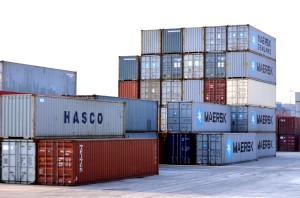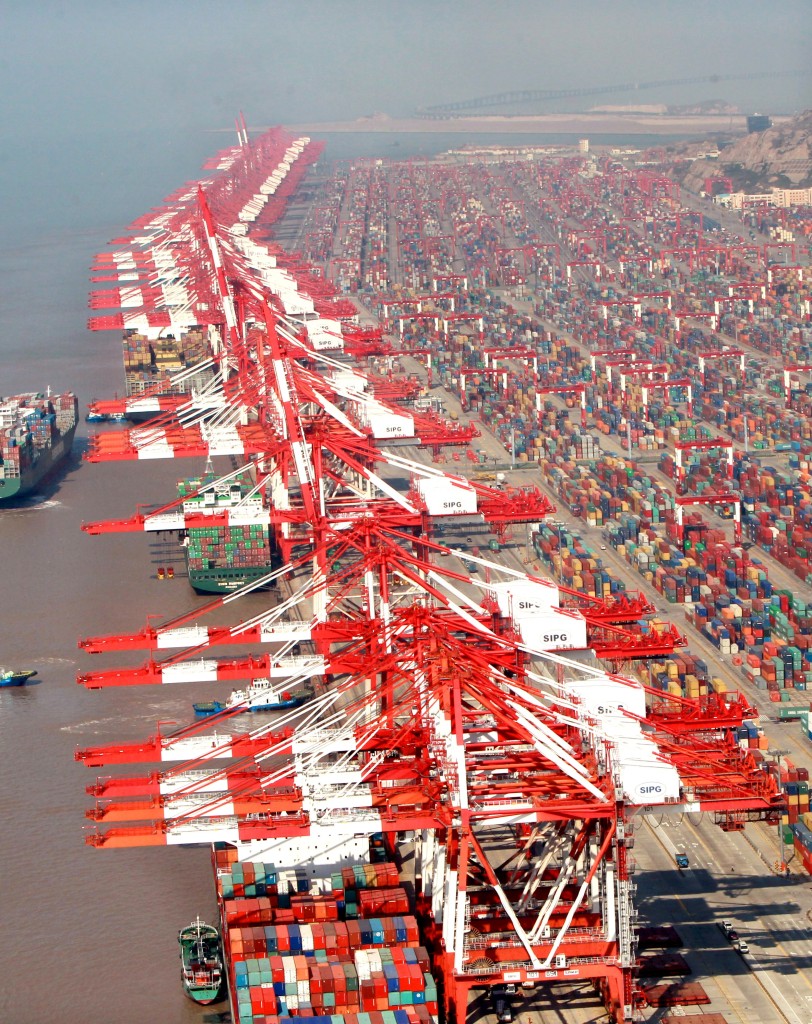Logistics legislation and regulations are changing inside the China (Shanghai) Pilot Free Trade Zone (CSPFTZ or Zone). Both on the water and in the air, China is aiming to build a competitive, international trading hub. Giovanni Pisacane, Managing Partner at Greatway Advisory, explains how the reduction of boarders and limitations for cooperation between foreign and Chinese companies, coupled with the new rules for customs, clearance, duty and transfer regulations is helping to create a more competitive market.
The CSPFTZ encompasses four customs supervision areas—Waigaoqiao Bonded Zone, Waigaoqiao Bonded Logistics Zone, Yangshan Bonded Port and Shanghai Pudong Airport Free Trade Zone. Bonded logistics zones are defined as areas where special legislation is applied and specific logistics activities are carried out; they have unique customs taxes and are normally located near ports or airports, as is the case in the CSPFTZ. These kinds of zones are becoming more common in China, where companies pay customs charges upon entering but not when exiting the zone. Rental prices within bonded logistics zones are normally kept high in order to deter factories from creating manufacturing bases within them.
The pilot scheme’s logistics legislation aims to create a more level playing field for domestic Chinese companies, Wholly Foreign-Owned Enterprises (WFOEs) and joint ventures, and cooperation between these different entities is encouraged. The purpose of creating more universal legislation is to engender a more competitive environment within the zone and to promote Shanghai as an international trading hub in accordance with the Framework Plan for the China (Shanghai) Pilot Free Trade Zone.
The CSPFTZ is creating new opportunities in the shipping and logistics sectors. International logistics companies can take a majority share if they are registered within the zone, although they still need to be structured as joint ventures. All shipping companies are now permitted to transfer cargo within the CSPFTZ, and foreign companies are allowed to ship from the CSPFTZ to other domestic ports in Mainland China, something that was previously only possible for Chinese companies.
A new system with international standards for trade and investment will be set up in the CSPFTZ in order to simplify the process for outbound investments. For instance, the Shanghai Municipal People’s Government will now be in charge of the filing procedure for general outbound investment. In addition, qualified foreign investors are going to be allowed to remit investment gains at their discretion.[1] This should lead to more equality between Chinese and foreign companies.
Different aspects within the shipping sector are encouraged, such as shipping financing, international shipping transportation, international ship management and international ship brokerage. The pilot is also developing freight index derivatives—freight derivatives are financial products that try to predict the price of transportation. Also, domestic companies will now be allowed to own non-Chinese registered flagships, and foreign ships are permitted to use a ‘convenience flag’[2] to encourage qualified ships to register within the CSPFTZ. As a result of these conditions broader opportunities are opening up for international trade.
 Shanghai Pudong International Airport is encouraged to increase the amount of international transfer flights, both for cargo and passengers, and in the interests of creating an international air hub passengers will now be able to make international transfers without requiring a visa. Moreover, financial leasing project companies do not need a minimum registered capital for aircraft and vessels.
Shanghai Pudong International Airport is encouraged to increase the amount of international transfer flights, both for cargo and passengers, and in the interests of creating an international air hub passengers will now be able to make international transfers without requiring a visa. Moreover, financial leasing project companies do not need a minimum registered capital for aircraft and vessels.
Another incentive that encourages investment in the new international hub is the simplification of customs administration procedures; clearance will no longer be required for each individual waybill. Thanks to the pilot legislation, clearance can be done monthly or even quarterly and goods can now be delivered to the warehouse before clearing has taken place. In these circumstances goods are actually cleared when they leave the CSPFTZ, a process which will only take two to three days. Therefore the new policies can be seen as a way to reduce the time needed to import goods as well as logistics costs. This will have particular importance for food cargoes, especially where the goods need to be temperature controlled or are easily perishable.
 It is also now possible for goods to be delivered to the CSPFTZ before the receiving company has paid any duty. If the goods are shipped domestically duty need only be paid upon leaving the CSPFTZ; if the goods are being shipped internationally duty does not need to be paid at all and the company need not go through any complicated customs procedures. For goods that require duty to be paid, the payment can be deferred until all goods have been ordered.
It is also now possible for goods to be delivered to the CSPFTZ before the receiving company has paid any duty. If the goods are shipped domestically duty need only be paid upon leaving the CSPFTZ; if the goods are being shipped internationally duty does not need to be paid at all and the company need not go through any complicated customs procedures. For goods that require duty to be paid, the payment can be deferred until all goods have been ordered.
Trading via e-commerce is also possible within the CSPFTZ but is currently restricted to domestic companies; however, it is possible that this will be opened up to foreign companies at a later stage— CSPFTZ policies are continuously evolving in ways that benefit the Chinese economy.
From a trading perspective, imported goods will be permitted inside the CSPFTZ before making any customs declaration, and direct trading for bonded goods will be allowed in specified areas of the Zone. This represents quite a positive leap forward for Chinese customs practices, and further detailed regulations regarding customs, tax and foreign exchange administration are expected to be promulgated by the central and local government in the near future.
The taxation system for logistics operations will be modified, with a change in the policy for export tax refunds at the port of departure already slated in the pilot scheme. The new regulations aim to create tax policies, bonded equity investments and offshore businesses provided the profits do not leave China and the tax base does not decrease.
The aim of revising the legislation is to attract more investment and make international trade within the Zone possible for both foreign and domestic logistics companies alike. Although the exact outcome of these changes is not yet known, expectations are high that the logistics and shipping service sectors will become more accessible within the CSPFTZ and a more competitive, market-driven environment will emerge.
Greatway Advisory is an International consulting firm operating in Asia since 2004 with offices in Shanghai and Beijing and correspondent alliances in Hong Kong and all over Europe. Their vision is to provide their clients with the highest professional services to assist them in maximising their international business objectives and attaining their goals.
[2]A business practice of registering a merchant ship in a sovereign state different from that of the ship’s owners, and flying that state’s civil ensign on the ship.



Recent Comments